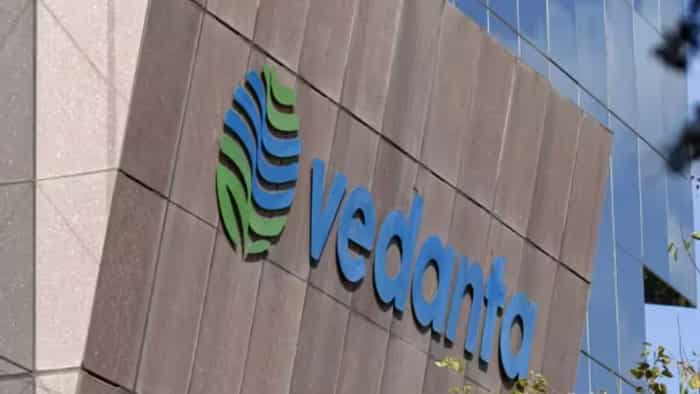'China's OBOR partially aims to marginalise US influence in Pacific'
The ambitious One Belt One Road (OBOR) initiative of China is intended to marginalise American influence in the Indo-Pacific region, a top US admiral said today, raising the implications of the recent 'Polar Silk Road' announced by Beijing.

The ambitious One Belt One Road (OBOR) initiative of China is intended to marginalise American influence in the Indo-Pacific region, a top US admiral said today, raising the implications of the recent 'Polar Silk Road' announced by Beijing. "It (OBOR) is probably the biggest development programme in the world. It's five times the amount of money that the United States (adjusted for US dollars in 2018) put in under the Marshall Plan. It's a significant investment by China," Admiral Harry Harris, Commander of the US Pacific Command, told members of the Senate Armed Services Committee.
"I agree," Harris said when one of the senators asked if the Belt and Road Initiative (BRI) partially intended to marginalise the US influence in the Indo-Pacific. "But the difference is the Marshall Plan was philanthropic in nature, and was designed to lift up the countries in Europe following World War II. And One Belt One Road is designed to lift up China," he said responding to a question on the ambitious Chinese programme.
Senator David Perdue said today there is a leader for life in China.
"I see that development, along with the BRI strategy that you so eloquently have called out over the last year, is two major initiatives that I think give us a hint at their long-term strategy. And it looks like, a new world order could be in mind here between Europe, Asia, and Africa," he said.
In Africa alone, the Chinese got over 20 ports that they've invested in and developed.
Today, they have USD 200 billion in loans in Asia, the Pacific, Africa, and Europe. They've promised over USD 1.2 trillion in future loans. That is 10 times the size of the Marshall Plan that rebuilt Asia and Europe, he said.
"My concern is that we already see their intent. The Marshall Plan was not loans, primarily. It was philanthropy. This investment, the USD 1.2 trillion that's coming, is mostly in the form of loans, and in Africa, as an example, they're loaning money into these ports and the ports' development. In Sri Lanka we already have an example where some of those loans went bad, and China foreclosed, and now China, for 99 years, has a port in Sri Lanka," Perdue said.
"In addition to Djibouti, and in addition to what they're doing in the belt and road strategy, it is a danger to the world order we enjoy today, where representative democracies in the free world dominate the cultural-political situation.
"In longer-term perspective, regarding to what we see evidence of right now in terms of the China strategy with the BRI and also with President Xi Jinping's change to a lifetime leader," he said.
Harris said the Chinese are working towards a new world order.
"I do believe that for those of us, myself included, who wonder the kind of country that China will be in 2049. I think we're seeing that now. We're seeing that play out with this move toward a leader for life," he said.
"We're seeing it play out in OBOR - One Belt One Road - or the Belt and Road Initiative, which is not only about development, which, of itself, is good, but it's not about development as much as it is about malign influence throughout the region making China the security partner of choice and pushing the
United States and our friends, allies, and partners out of the region. So, I think it has a strategic impact beyond simple development," Harris said.
He also said China had announced the Polar Silk Road a few weeks ago.
"That's a clear indication that China views the Arctic as a sphere of influence for them. There are some Chinese scholars that would actually suggest that resources in the Arctic -- a portion of those resources should be China's because they have a fifth of the world's population," he said.
"So I think we should look at that carefully. Consider what that means in the long term. China is putting their money where their mouth is. They have four icebreakers and are building a fifth. I think that's significant.
"You know, why would a country have that kind of capability if it has no border on the Arctic or Antarctic? Because they're interested in the resources that are there. Because they've called that out and named it the Polar Silk Road," Harris said.
Get Latest Business News, Stock Market Updates and Videos; Check your tax outgo through Income Tax Calculator and save money through our Personal Finance coverage. Check Business Breaking News Live on Zee Business Twitter and Facebook. Subscribe on YouTube.
02:10 PM IST











 India-China troops begin disengagement at 2 friction points in Ladakh
India-China troops begin disengagement at 2 friction points in Ladakh China emerges as India's top import source during April-September 2024
China emerges as India's top import source during April-September 2024 Canada imposes a 100% tariff on imports of Chinese-made electric vehicles Toronto
Canada imposes a 100% tariff on imports of Chinese-made electric vehicles Toronto China's exports grow 7% in July, under forecasts, while imports gain momentum
China's exports grow 7% in July, under forecasts, while imports gain momentum Paris Olympics: China win gold medal in 10m Air Rifle Mixed Team event
Paris Olympics: China win gold medal in 10m Air Rifle Mixed Team event